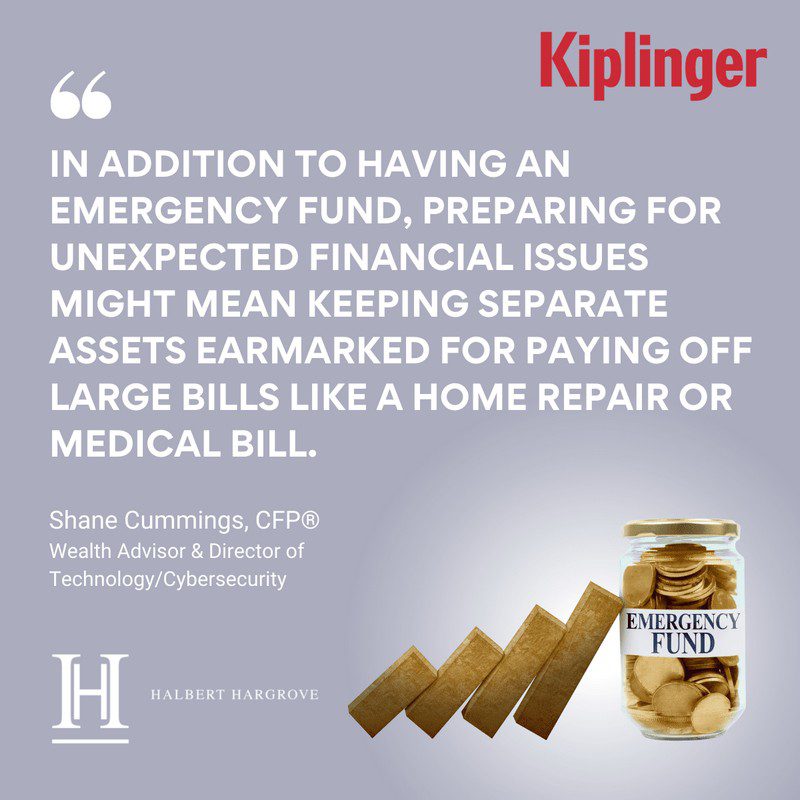By Joyce Lamb, Kiplinger featuring Shane Cummings, CFP®, AIF®, Wealth Advisor & Director of Technology/Cybersecurity
We asked some of our contributing financial experts what to do to cover emergencies, in addition to having an emergency fund. They give some great suggestions.
Oh, the dreaded financial emergency. It crops up when you least expect it — usually late on a Friday, right? That’s when our options for resolving the issue are the most limited, whether its air conditioning on the fritz (an especially big concern during all these heat waves) or a plumbing disaster. We’re left scrambling to both secure expert help and pay for it. Or maybe you have an unexpected medical bill or lose your job. What can you do to make ends meet?
While there’s no way to know what’s going to happen or take steps, beyond the usual preventive ones, to head it off, you can at least be prepared in other ways. To find out what our options could be during a financial emergency, we at Kiplinger.com asked some of the financial experts among our Building Wealth contributors and Kiplinger Advisor Collective members to answer this question:
How can I best prepare for unexpected financial emergencies, such as job loss, medical bills or major home repairs?
Their responses range from setting up an emergency fund to cutting unnecessary expenses right away or tapping a home equity line of credit or your workplace benefits. They also have some ideas about what not to do, such as turn to predatory payday lenders.
Perhaps while you peruse their suggestions, you’ll be inspired to check out some of the other stellar financial advice these experts offer Kiplinger.com readers on a regular basis (just click on their name to see their contributions and learn more about them).
Here’s what our experts had to say about dealing with financial emergencies …


